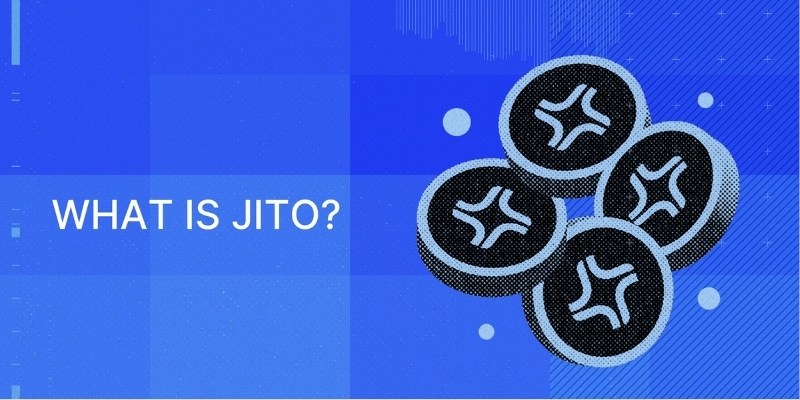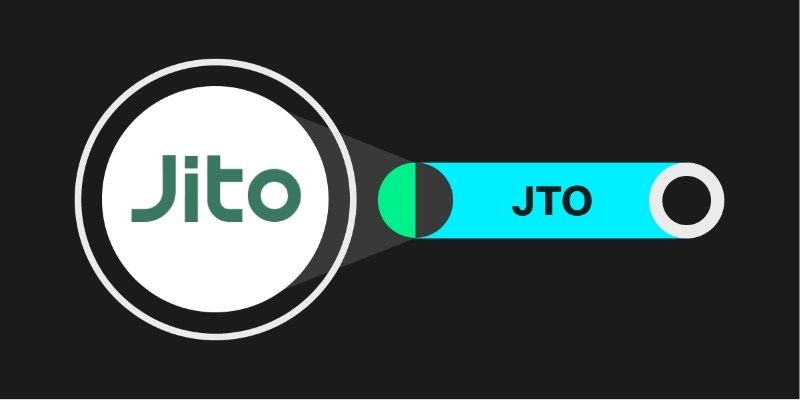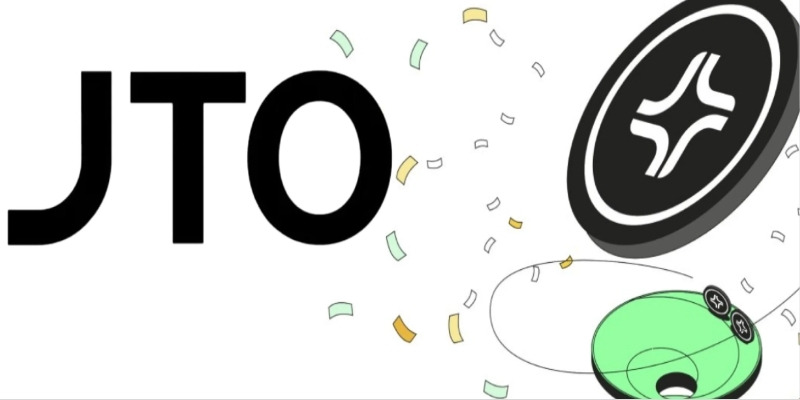In the ever-evolving blockchain world, liquid staking protocols are becoming a prominent trend, allowing users to optimize profits from staking their coins. Jito is one of the most advanced liquid staking protocols, offering an optimal solution for SOL holders by providing JITOSOL and integrating MEV profit opportunities. So, what is Jito and how does it work? Let’s dive into the details in this article.
What is Jito?
Jito is a liquid staking protocol built on the Solana blockchain, allowing users to stake SOL and receive JITOSOL, a token that represents their stake. Liquid staking differs from traditional staking because users do not need to lock their tokens for an extended period. Instead, they can still participate in DeFi activities such as yield farming, lending, or other financial applications.
With Jito, participants not only earn rewards from staking SOL but also have the potential to generate additional profits by extracting MEV (Miner Extractable Value) and optimizing arbitrage opportunities across decentralized exchanges (DEX) like Orca, Raydium, and Serum.
Jito focuses on optimizing the performance of the Solana network, helping reduce system load while providing a mechanism that not only involves staking but also maximizes user profits. Jito offers a novel way for users to receive rewards flexibly without locking their tokens for long periods.
Jito allows users to engage in complex financial activities without needing significant assets or deep knowledge of blockchain mechanisms. This opens up opportunities for newcomers to join the market and earn additional profits from tokens they already own.
This protocol brings innovation to the Solana ecosystem, enhancing asset management flexibility and helping users gain more benefits by participating in the blockchain network without losing control over their assets.

Components of Jito
To better understand how Jito works, we need to analyze its key components. Each element in the Jito ecosystem plays a crucial role in optimizing the staking process and generating profits for users.
JITOSOL: This is the token representing a user’s stake. When users stake SOL in the Jito protocol, they receive JITOSOL at a 1:1 ratio. This token serves not only as proof that the user has staked SOL but can also be used in DeFi applications within the Solana ecosystem. JITOSOL holders can use their tokens for activities such as yield farming, lending, or trading on other DeFi platforms. This allows users to earn rewards from staking while also taking advantage of other profitable investment opportunities.
MEV (Miner Extractable Value): MEV refers to profits generated by optimizing transactions within a blockchain, through the efficient use of space within a block. Jito extracts MEV by optimizing the block space on the Solana network, offering significant profit opportunities for JITOSOL holders. MEV helps minimize unnecessary competition within the blockchain network while allowing users to earn additional rewards from price arbitrage between DEX platforms.
StakeNet: This is the platform that manages and optimizes validators within the Solana ecosystem. StakeNet is a system that selects and distributes SOL to the best-performing validators while ensuring that these validators can effectively extract MEV. The system also includes auxiliary programs such as the Validator History Program and the Steward Program, which help users easily select validators and optimize profits from staking SOL.
Through these components, Jito provides a comprehensive solution for users who want to participate in staking while remaining flexible in using their assets for other financial applications and taking advantage of MEV extraction opportunities.

How does Jito work?
The operation of Jito is designed to ensure the optimization of profits for users while maintaining the security and performance of the system. To better understand how Jito works, let’s explore the basic steps in the staking and MEV profit extraction process.
Stake SOL in Jito: Users begin the process by sending SOL to Jito’s staking pool. Once successfully staked, users receive JITOSOL at a 1:1 ratio. This token represents their stake and can be used in DeFi activities such as yield farming, lending, and trading.
Delegate SOL to validators: After staking SOL, Jito delegates the SOL to validators in the Solana network. However, not all validators are selected; Jito chooses validators that can effectively extract MEV and perform well. This ensures that profits are optimized from both staking and MEV extraction.
Extract MEV: Validators in the Solana network participate in block space auctions to optimize transactions within the blockchain. These validators take advantage of MEV opportunities from price arbitrage between DEX platforms, increasing profits from transactions executed within the Solana network.
Profit distribution: Profits from staking and MEV extraction activities are redistributed to Jito’s staking pool. These rewards are then distributed to JITOSOL holders according to their share in the pool. This is one of Jito’s unique features, allowing users to not only earn staking rewards but also generate additional profits from MEV extraction.
Accumulate profits: One of Jito’s biggest advantages is that users can continue to participate in other financial activities without needing to withdraw their SOL. With JITOSOL, users can continue earning profits from DeFi activities within the Solana ecosystem while maintaining their staking and MEV extraction rewards.
Through this process, Jito helps optimize profits for users and offers numerous investment opportunities within the Solana ecosystem.

Information about Jito Token (JTO)
The JTO token is a crucial part of the Jito ecosystem. This native token serves many purposes, enhancing the value for users participating in the system.
JTO Token key metrics
- Name: Jito
- Token symbol: JTO
- Blockchain: Solana
- Total supply: 1,000,000 JTO
- Circulating supply: 121,680,964 JTO
JTO Token allocation
- Community development fund: 24.3% – Managed by DAO on the Realms platform.
- Ecosystem development fund: 25% – Used to fund the community and project contributions.
- Core contributors: 24.5% – Reserved for the development team and partners.
- Investors: 16.2% – Allocated over 3 years with a 1-year cliff.
- Airdrop: 10% – 90% distributed immediately, remaining 10% unlocked over one year.
JTO Token release schedule
- Airdrop: 90 million JTO distributed immediately, 10 million JTO unlocked gradually over one year.
- Unlock Schedule: Tokens will be unlocked in stages to ensure sustainability and fairness to the community.
JTO Token use cases
- Staking: Users stake SOL to receive JITOSOL and benefit from staking rewards and MEV.
- Governance: JTO tokens can be used for governance decisions within the Jito ecosystem via DAO.
- Rewards: JTO will be rewarded to participants and contributors to the network, from validators to users.

Project team, investors and partners
Project team
- Lucas Bruder: Co-Founder and CEO of Jito, with years of experience in blockchain.
Brian Smith: COO of Jito, responsible for overseeing daily operations. - Zano Sherwani: CTO of Jito, the head of technical and protocol development.
Investors: Jito raised $10 million in a Series A funding round, with participation from prominent investors such as Multicoin Capital, Framework Ventures, Solana Ventures, Delphi digital and Robot ventures.
Partners: Jito collaborates with various partners within the Solana ecosystem, including DEX platforms and DeFi projects, to maximize value for users.
In conclusion, what is Jito? Jito is a powerful and innovative liquid staking protocol that not only helps users optimize profits from staking SOL but also integrates MEV to offer superior profit opportunities. With a highly experienced development team and backing from reputable investors, Jito promises to be a potential project within the Solana blockchain ecosystem. According to Financial Insight Daily, if you’re looking for a way to maximize returns from staking SOL, Jito is definitely a project worth considering.
